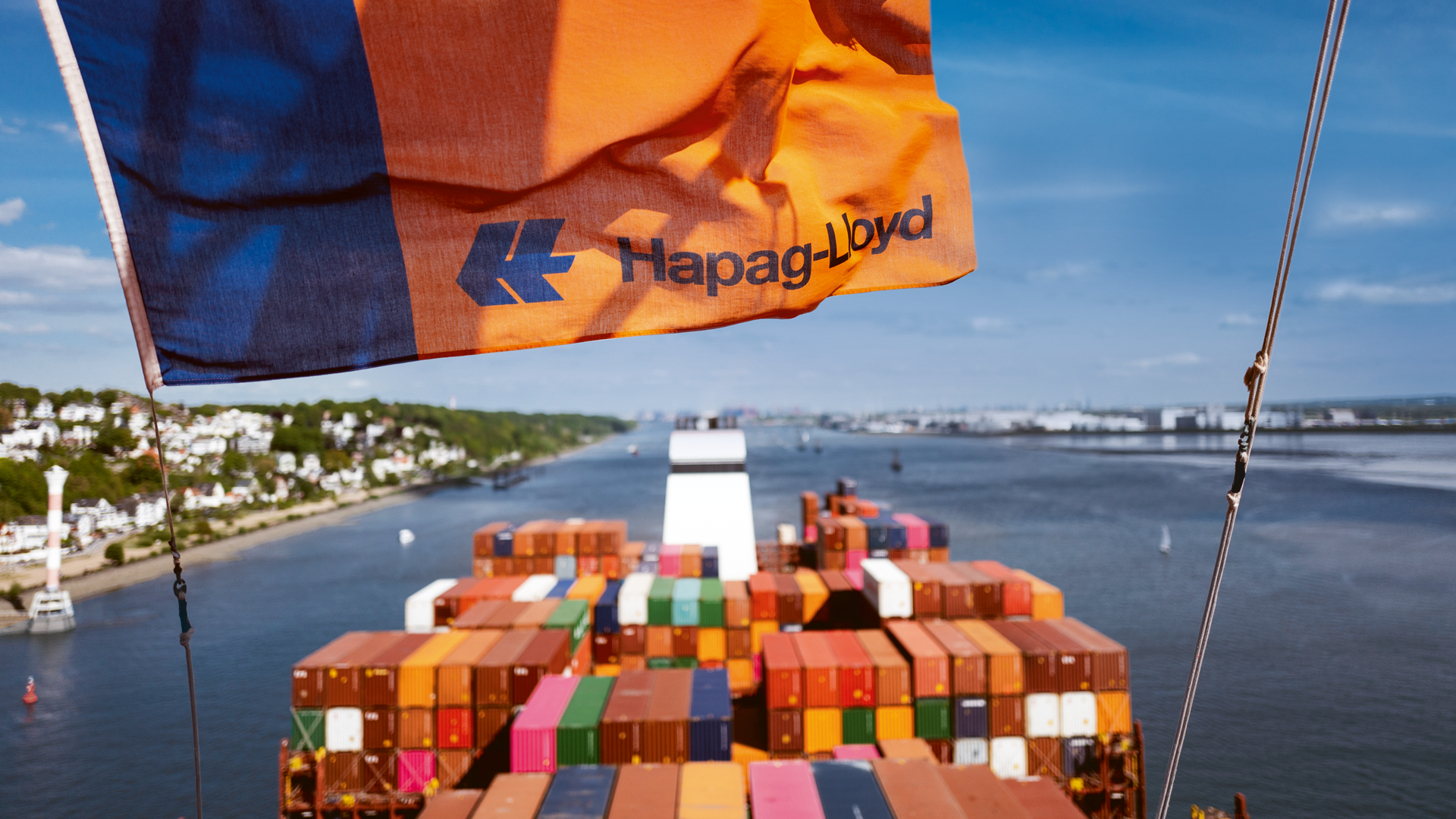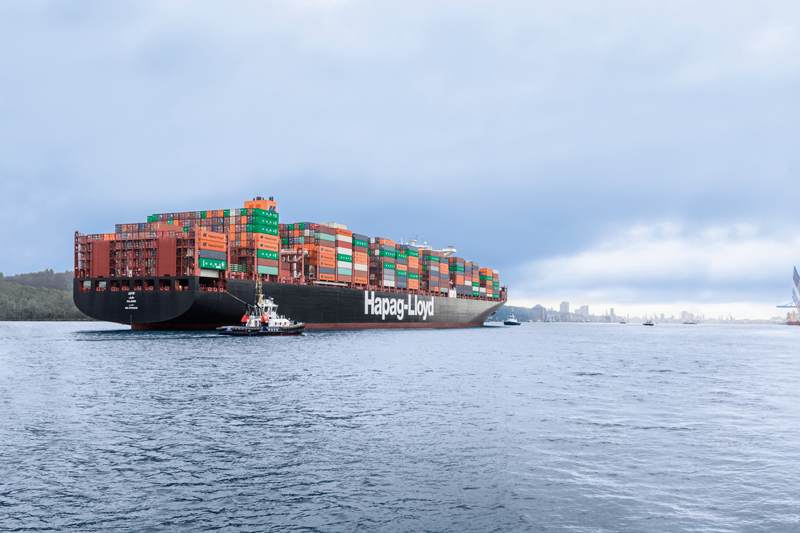Hapag-Lloyd AG
Hapag-Lloyd is one of the world's leading liner shipping companies and sets standards in customer service, e-business and productivity. Headquartered in…

Hapag-Lloyd has been testing modern biofuels since 2020 and now offers a reduced-CO2 transport solution that uses biofuel mixtures instead of customary heavy oil. Only just recently, the Hamburg shipping company signed an agreement on the use of such biofuels with DHL Global Forwarding, the air/sea-freight specialists in Deutsche Post’s DHL Group. As a first step, Hapag- Lloyd will be using biofuels for 18,000 TEU of the sea freight volume shipping for DHL. That will save 14,000 tons of CO2 emissions. “We have meanwhile reached similar agreements with a few selected customers and are in discussion with other interested clients,” says Janin Aden, Hapag-Lloyd’s Senior Director Sustainability. Hapag-Lloyd has so far mainly accessed cooking oils, but also fuels based on food waste.
The use of fuels based on other waste products, e.g. forms of waste from the timber industry, is also conceivable. However, it is not yet possible to operate the entire fleet of 248 containerships on these. Since “the availability of biofuel is limited, with other carriers and industries also keen to exploit this more climate-friendly resource,” adds Aden. In the medium term, therefore, synthetic climate-neutral fuels will need to be developed so as to facilitate decarbonization of shipping as a whole. “We are in discussion on this with our fuel suppliers and researching along with other partners in the industry,” states Aden.

The moves towards sustainability being undertaken by this long-established shipping line are comprehensive. The company aims for climate- neutral operation of its vessels by 2045. Hapag- Lloyd has already ordered advanced 23,500 plus-TEU vessels with dual-fuel propulsion and is applying efficiency measures to its existing fleet. Continuous monitoring of its ship operation data is enabling the company to spot potentials for improving the fleet load-factor, as well as optimizing use of existing space on board. Additional software solutions have enabled discharge processes, and therefore energy consumption, to be improved.
“In addition, operative measures in deploying the ships have facilitated saving of fuel and therefore emissions,” adds the sustainability manager. Among these are optimization of hull shape, propellers and rudders, as well as hull coatings to reduce or eliminate fouling and reduce consumption of the energy needed for cleaning. Engines are constantly being further improved, while the company aims to make efficient use of shore power as well as waste heat and shipboard energy. “In addition, we are working closely with worldwide research centres, and are active in international bodies like the World Shipping Council, to make further progress on regulatory and economic conditions to further promote the maritime energy transformation,” she explains.
As at all Hapag-Lloyd’s worldwide locations, for Hamburg too the company is actively devising and applying individual packages of measures to decarbonize office activities by end-2023.